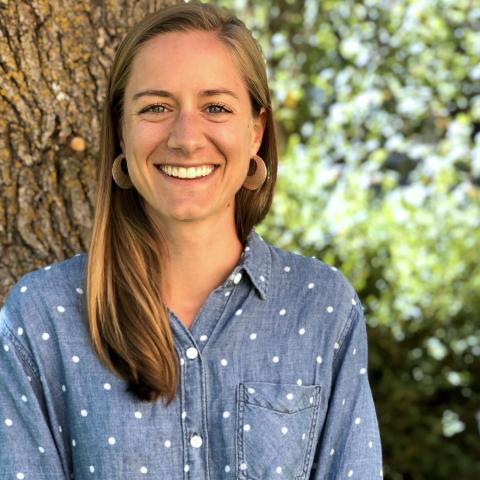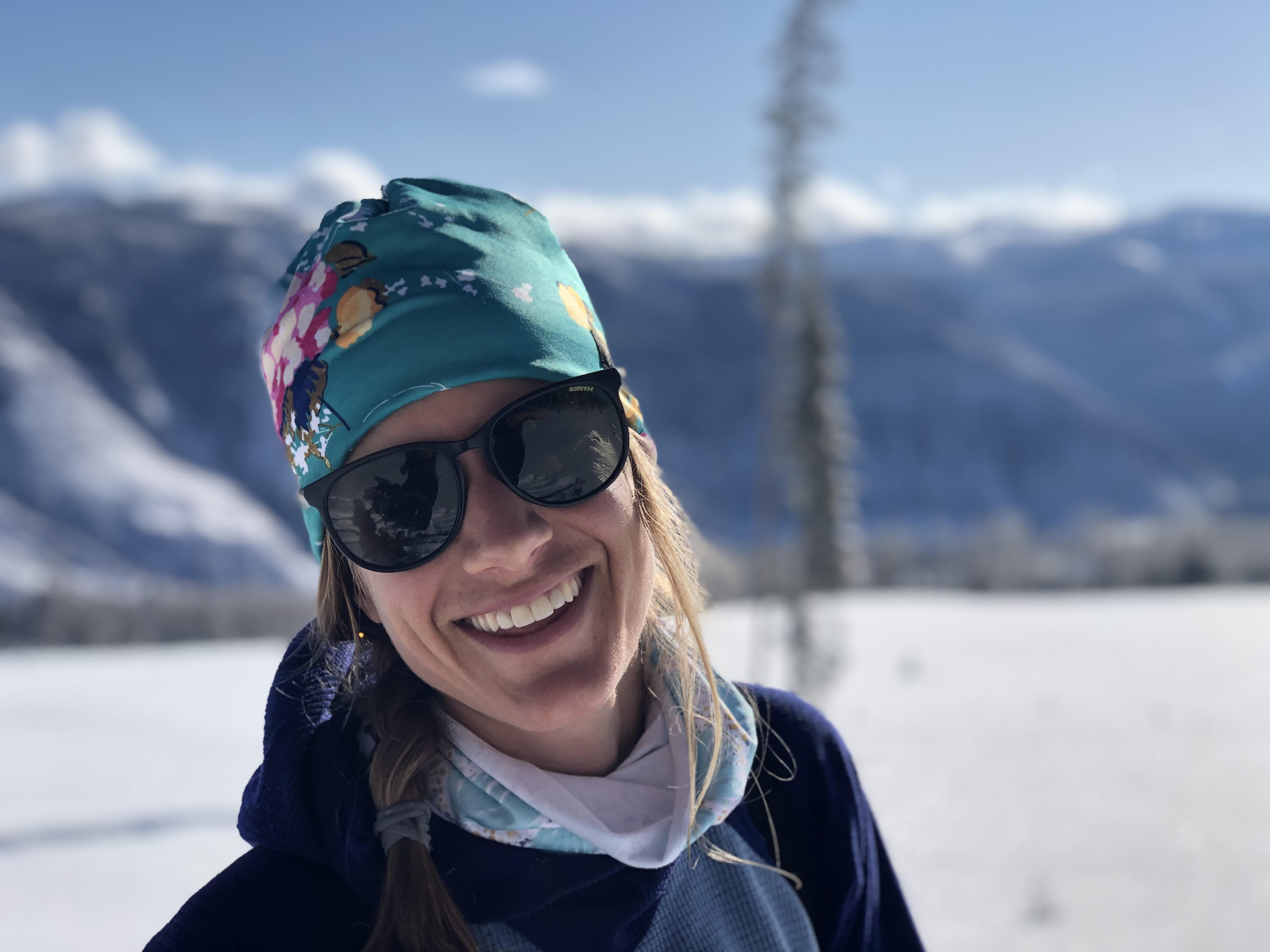Where there is water on this planet, there are water issues, and as a Colorado native, Kate Burchenal has long been drawn to the specific challenges of the western United States. This is one reason why she chose the Bren School of Environmental Management over the graduate schools she’d been accepted to at Yale, Duke, and University of Michigan.
“I knew I wanted to study water resources management, and I’m passionate about water in the West. Places like Michigan, Connecticut and North Carolina deal with very different water challenges and while it would have been interesting to study water resources through those lenses, I think it would have launched me into a career more suited to those regional issues. I was excited to learn from professors with extensive careers and experience in western water.”

In fact, Kate’s experience at Bren, including her group project, could not have better prepared her for the position she holds today as a Program Officer at the Catena Foundation, a private environmental foundation based out of western Colorado with ties to Bren. Catena supports the Sustainable Water Markets (SWM) fellowship which Kate was part of during her second year at Bren.
“Our group project was lovingly nicknamed Teton Recharge. Our group of five helped establish a market for groundwater recharge in the Teton Valley in Idaho. In December of our second year, we spent a week in Driggs, Idaho, where we were able to get to know the farmers who would be doing the actual recharge and whose families had lived in the valley for generations, the NGOs who had conceived of this idea, and the state agencies who would oversee the program.
Kate shares that one of her favorite aspects of the Master of Environmental Science and Management group project experience was that they were working with a real-world client, and there were very real implications for their work. "We dedicated so much time and effort to this over a year-and-a-half and it was empowering to know that it would be put to use rather than simply sitting on a shelf. We’ve kept in touch with our client and he keeps us posted on the groundwater recharge project which is up and running successfully. It’s great to know we played a part in getting this project to where it is today.”
Kate also recognizes that she might not have necessarily worked on that topic otherwise. "It was a great learning experience. I was our group’s project manager and I really enjoyed working to encourage and leverage each member’s individual strengths while knitting them all together into something cohesive.”
I was our group’s project manager and I really enjoyed working to encourage and leverage each member’s individual strengths while knitting them all together into something cohesive.
Among other opportunities this project opened was a lesson in rubbing elbows: Kate, a former ski patroller, says, “I brought my gear with me to Idaho and got to ski Teton Pass with our client!”
She learned more about Catena, and they learned more about her. “They knew I was interested in water management and wanted to get back to Colorado after graduating from Bren.” She was hired in 2018 as a Water Fellow, and today her work revolves around the health of the multi-state, multi-stakeholder Colorado River. “I work in our Watershed Health program through which we aim to restore native riparian habitat as well as restore streamflow for environmental purposes. I focus more on the latter through grantmaking related to water policy, water markets and water management.”
And although she’s a relative newcomer, she is very gratified by the impact of what she and her colleagues have accomplished. “I haven’t seen the long-term impacts of my direct work yet, but I’m fortunate to be plugged into projects where I’m able to see historical change and significant progress to date. It’s very inspiring to me.
“The Colorado River Basin is hugely important as it is relied upon by more than 40 million people in the southwestern US and northern Mexico, 29 federally recognized Native American tribes, as well as some of our nation’s most productive agricultural producers and plenty of industry. The issues facing the Basin, like overallocation of its resources, continue to evolve with the compounding impacts of climate change and population growth. There’s a lot of tension, but also a lot of opportunity for change and improvement.”
Kate has a good sense of how her Bren experience influences her ability to do good work. “Every time I approach a new project, I have an array of questions in my head as a starting point, inspired by the interdisciplinary courses I took at Bren. Environmental management doesn’t exist in a silo; there are intersections with biology, history, climate science, geography, economics, sociology. That is absolutely true in my daily work and Bren taught me how to approach a project holistically, to look for those intersections.”
She also credits Bren’s Career Center with helping her land her job at Catena. “The career team helped me hone my resume to make it succinct and to the point. The model they have for formatting a resume and cover letter is really practical and effective. I will keep using that going forward, as well as their tips for how to prep for interviews. They taught me to make a physical list of my most relevant attributes and experiences that demonstrate I’m the best candidate for the job. It sounds simple, but if you don’t write it down you can forget it.”
To a prospective or current Bren student, she says,“Take advantage of where you are. It’s easy to get caught up in the daily grind of this class and that assignment, but step back and look at this incredible place and the resources. You have access to fascinating professors who have impressive careers and extensive networks. Tap into that! Talk to the professors in your career field. I started doing that in my second year and wish I had taken advantage sooner.
“It’s a missed opportunity not to try. They will make time for you. These are amazing professionals in their field so that can be intimidating, but they’re in academia for a reason – because they want to work with students. Give them a chance to show you that.”
